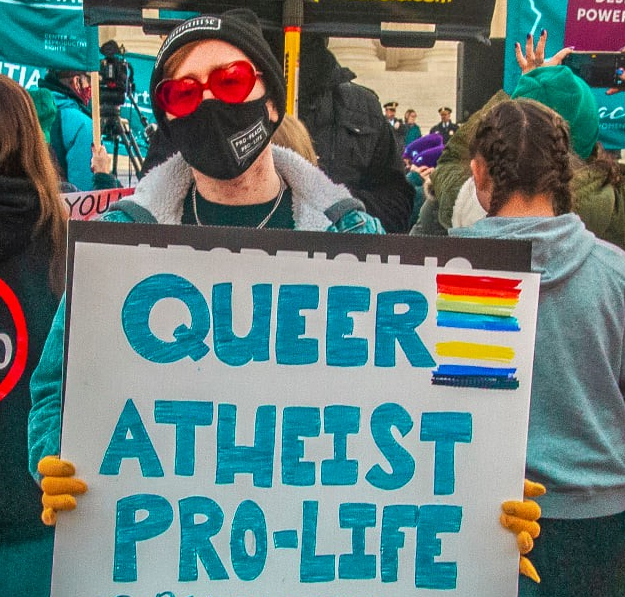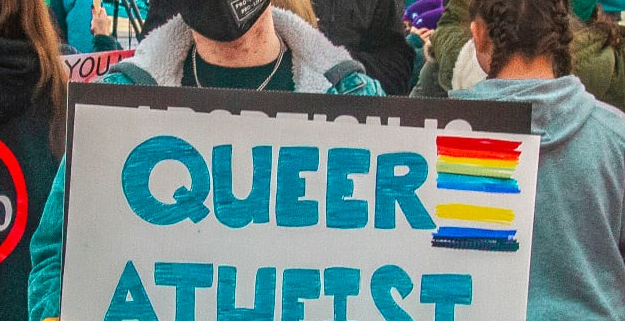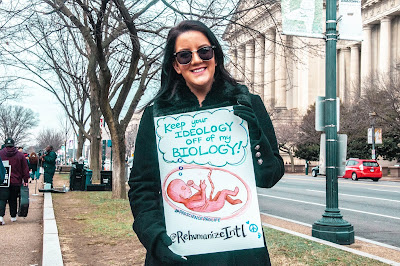Overturning Roe v. Wade Is Not An Attack on LGBT Rights

[Today’s guest article is by Kaine Spitak and Herb Geraghty. Kaine Spitak is a JD candidate at Duquesne University and the President of their school’s LGBT Law Society. Herb Geraghty is the Executive Director of Rehumanize International, a secular non-partisan human rights organization dedicated to creating a culture of peace and life.]
In the wake of the Supreme Court’s Dobbs v. Jackson decision that overturned Roe v. Wade, many have claimed that LGBT rights are “next on the chopping block.” As supporters of both LGBT and prenatal human rights, we decided to evaluate these claims and the Dobbs decision itself to present a counter to this narrative.
While unable to cite any text within the Dobbs majority opinion that validates the assertion that this decision threatens LGBT rights, pro-abortion rights advocates have pointed to Justice Thomas’ concurring opinion which suggested that the Court review all privacy case law – including Obergefell v. Hodges and Lawrence v. Texas, which enshrined the rights to same-sex marriage and sexual intimacy, respectively.
While Thomas’ concurring opinion is certainly problematic for those of us concerned with LGBT rights, it is important to note that it is only the majority opinion accompanying a Supreme Court decision that holds real legal authority. Concurrences and dissents are not binding, and it is only in very rare circumstances that these types of opinions are ever relied upon in future Court decisions. Further, Thomas has made it clear for years that he takes issue with the concept of Substantive Due Process – which is the legal theory that the government may not interfere with certain rights under any circumstances – in general. This encompasses the right to privacy and possibly the first eight Amendments, voting, and the entire political process. Thomas is alone in this crusade. His concurrence in this case only cites his own past concurrences and dissents and four other similarly non-binding opinions from other justices. This means that not only is Thomas’ concurrence in the Dobbs decision without legal authority, but the past opinions he cites to support his position are without legal authority as well, further invalidating his position.
When it comes to attempting to predict how the Supreme Court will handle issues related to already-established LGBT rights in the future, we should instead look at the text of the actual majority opinion. Throughout the opinion, Justice Alito exerted great effort to make clear that no other precedent or privacy right is threatened by the Dobbs decision: “And to ensure that our decision is not misunderstood or mischaracterized, we emphasize that our decision concerns the constitutional right to abortion and no other right. Nothing in this opinion should be understood to cast doubt on precedents that do not concern abortion.”
Not only is this explicitly stated (with Justice Thomas including this same phrasing in his concurrence), but Justice Alito actually cited Obergefell and Lawrence as justification for overturning Roe. He first begins by citing “many other occasions,” in which “this Court has overruled important constitutional decisions.” These cases that concerned the important overturning of precedent included Obergefell, Lawrence, and Griswold. Of all the factors Justice Alito cites as reason for overturning Roe, “an absence of concrete reliance” concerns the fallacy that abortion is included in the right to privacy, because abortion is entirely different from all of the privacy-based rights that the Court has recognized. Justice Alito writes, “None of the other decisions cited by Roe and Casey involved the critical moral question of abortion.” Part of the Supreme Court’s legal justification for enshrining established LGBT rights into precedent was precisely that things like same-sex marriage and intimacy do not harm a third party. Crucially, the Justices conclude, abortion is distinct from LGBT+ and other privacy rights because the act of abortion takes the life of an unborn human being. This legal reasoning behind the Dobbs decision further validates LGBT rights and as a result, creates a stronger level of protection for their standing as precedent in future cases. Members of the LGBT community should be heartened to see that the majority of the Justices agree with Justice Alito on this issue.
An honest reading of the Dobbs case should not lead one to conclude that same-sex marriage or other established privacy based rights are in jeopardy. This is not to say that LGBT people and our allies have nothing to be concerned about. In 2022, the Trevor Project found that 45% of LGBTQ youth seriously considered attempting suicide in the past year, including more than half of transgender and nonbinary youth. LGBT people still face higher rates of violence and discrimination for being who we are. Further, this year has seen a horrific onslaught of anti-LGBT laws and policies being introduced at the state level. In particular, states like Florida moving to exclude gender affirming hormone replacement therapy for transgender patients (including adults) from Medicaid should alarm us all.
In the US today, there are real material threats to LGBT rights, safety, and health. However, they are not coming from the Dobbs decision. Like Obergerfell and Lawrence before it, Dobbs v. Jackson was a necessary step toward justice and a monumental expansion of human rights protections to a marginalized group. Both the unborn and LGBT people deserve to live free from violence, discrimination, and hate. This decision was a step forward into a more just world for all of us.
[Photo credit: Rehumanize International]




Leave a Reply
Want to join the discussion?Feel free to contribute!